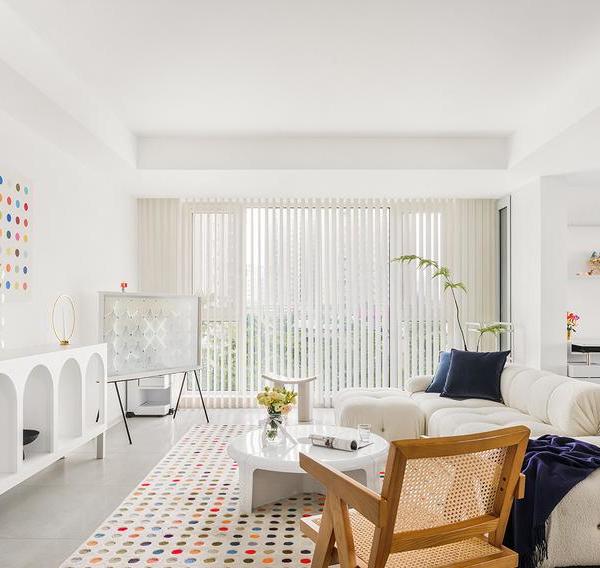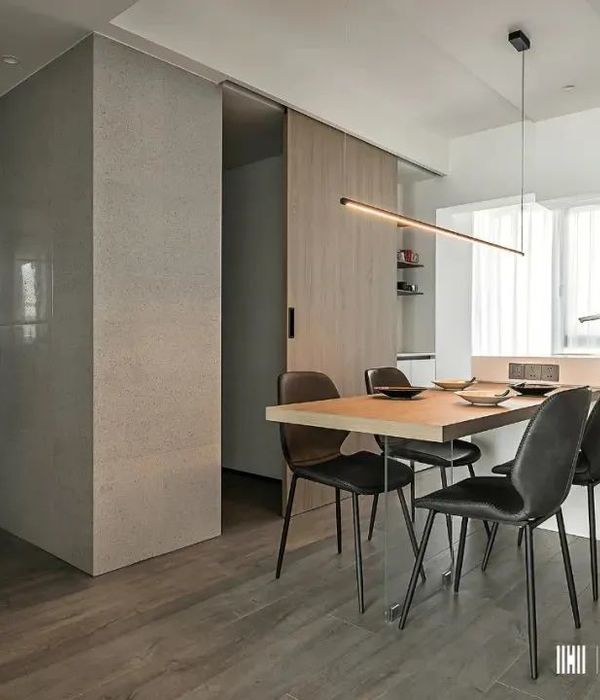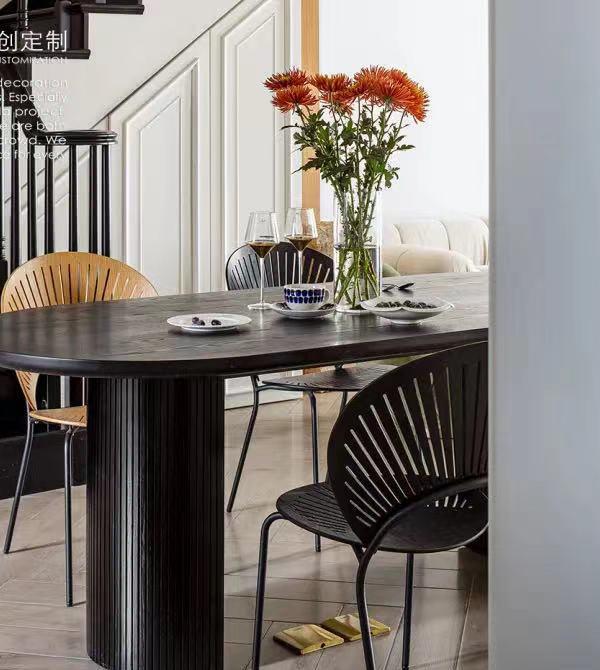架构师提供的文本描述。这所房子的设计主要是根据当地建筑的规则进行的。它尊重传统建筑环境的形态,参照房屋的主流门式屋顶类型,并尊重其体积和材料参数。另一方面,烟囱住宅标志着用户的特殊性所产生的类型转换。
Text description provided by the architects. The design of the house is primarily based on the rules of local architecture. It respects the morphology of the traditional built context, referring to the prevailing gabled roof type of the house and respecting its volumetric and material parameters. On the other hand the Chimney house marks typological transformation generated by the users’ specificity.
© Flavio Coddou
(Flavio Coddou)
Cross Section
© Flavio Coddou
(Flavio Coddou)
厨房有一个多功能的木炉,在一对住在农村的夫妇的私生活和社会生活中起着至关重要的作用。炉子的中央定位烟囱决定了房子的概念,通知在房子的特定横截面内的空间中央对齐布局。屋顶的山脊被推开,形成一个连续的天窗,贯穿整个房子的线性体积,并为所有关键的空间提供顶灯。
The kitchen, with a multifunctional wood stove, plays the vital role in the private and social life of a couple living in the countryside. Stove’s centrally positioned chimney determines the concept of the house informing the centrally aligned layout of spaces within the specific cross-section of the house. The ridge of the roof is pushed apart creating a continuous skylight running throughout the house’s linear volume and providing top light for all the crucial spaces.
位于村庄的边界线上,它明显地与相邻的木制谷仓有关,带有黑色的木质物质性,但新的独特的体积特征却故意远离它的乡土邻居,奇怪地与附近的16世纪教堂联系在一起,创造了两个人之间的对话。
Positioned on the borderline of the village it clearly relates to the adjacent wooden barn with the dark wooden materiality, but with the new distinctive volumetric identity moves deliberately away from its vernacular neighbour and curiously associates with the nearby 16th century church creating a dialogue between the two.
© Flavio Coddou
(Flavio Coddou)
油化落叶松板材完全定义了外部的重要性,与传统的白话谷仓装饰有关。故意的二次木屋顶覆盖提供了连续性的深色木质材料的正面覆盖层。这座建筑的围护结构是一堵由多个存储空间、二次厨房和小的“适合居住”的窗口壁龛组成的厚壁,这些壁龛小心地引导光线进入,并将视野扩展到周围环境。交互功能允许一系列活动。室内的物质定义对居民的触觉能力作出反应:涂油的橡木用于人体能够到达和接触的所有表面,而屋顶的结构则是钢筋混凝土,显示出木质模板的印记,从而保证了内部围护结构的连续性。
Oiled larch boards completely define the materiality of the outside relating to the traditional finish of the vernacular barn. Deliberate secondary wooden roof cladding provides the continuity of the dark wooden materiality of the facade cladding. The building’s envelope is developed as a thick wall integrating multiple storage spaces, secondary kitchen, and small ‘inhabitable’ window niches that carefully curate incoming light and expanding views to the surroundings. Interactive capabilities allow for an array of activities. Material definition of the interior responds to haptic abilities of inhabitants: oiled oak is used for all the surfaces that can be reached and touched by the human body, whereas the structure of the roof is in reinforced concrete showing the imprint of the wooden formwork that provides for the continuity of the texture of interior envelope.
© Flavio Coddou
(Flavio Coddou)
站起来凝视,从物质的内部信封开始,向天顶移动,人们可以发现和观察不断变化的天空状态,这成为房子里日常生活的一部分。
Rising the gaze, starting from the material inner envelope and moving towards the zenith, one can discover and observe ever changing condition of the sky that becomes part of everyday life in the house.
© Flavio Coddou
(Flavio Coddou)
厨房有一个多功能的木炉,在一对夫妇的私人和社会生活中起着至关重要的作用。中央放置的烟囱决定了房子的概念,通知在房子的特定横截面内的空间的线性和中央对齐的布局。奇怪的是,它独特的体积特征把房子和附近的16世纪教堂联系在一起。
The kitchen, with a multifunctional wood stove, plays the vital role in the private and social life of a couple. The centrally positioned chimney determines the concept of the house, informing the linear and centrally aligned layout of spaces within the specific cross-section of the house. Its distinctive volumetric identity curiously associates the house with the nearby 16th century church.
© Flavio Coddou
(Flavio Coddou)
Architects Dekleva Gregorič architects
Location Logatec, Slovenia
Category Houses
Project Team Aljoša Dekleva, Tina Gregorič, Vid Zabel, Primož Boršič
Area 205.0 m2
Project Year 2016
Photographs Flavio Coddou
Manufacturers Loading...
{{item.text_origin}}












